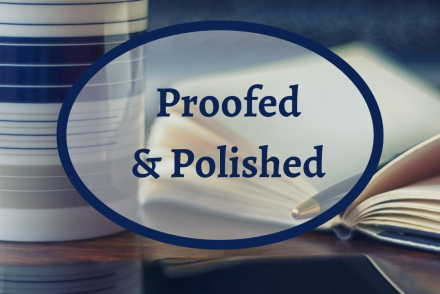
Writing for YA
Writing a First Novel: Ten Mistakes Not to Make
There’s no one right way to write a novel, but there are plenty of wrong ways! Here’s a few…
July 27, 2021
There’s no one right way to write a novel, but there are plenty of wrong ways! Here’s a few…
July 27, 2021
To Hyphenate or Not to Hyphenate… How do you feel about hyphens? Do you use them a lot? Never?…
November 10, 2020
Vocabulary Mistakes I’ve been proofreading a pretty wide variety of material lately—master’s dissertations, personal letters to family, freshman film…
October 10, 2020
Have you ever entered your work in a writing contest? These contests are organized by organizations like the American…
December 20, 2019